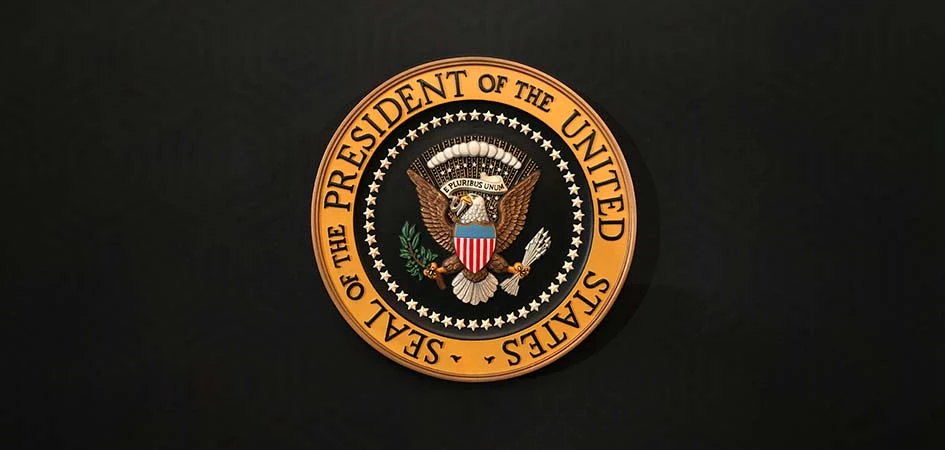Biden Administration Releases National Cybersecurity Strategy

Trustwave Research Reveals Cybersecurity Risks Threatening Patient Lives in Healthcare. Learn More
Get access to immediate incident response assistance.
Get access to immediate incident response assistance.
Trustwave Research Reveals Cybersecurity Risks Threatening Patient Lives in Healthcare. Learn More

President Joe Biden took the next step in the nation's ongoing effort to combat cyber threats by issuing the National Cybersecurity Strategy on March 2, which focuses on growing the public-private sector security partnership needed to protect critical infrastructure, dismantle threat groups, and increase resiliency.
“Trustwave Government Services (TGS) believes the National Cybersecurity Strategy is an important next step in the nation’s ability to thwart cyberattacks from both state-sponsored and criminal threat actors,” said Bill Rucker, president of TGS. “TGS is ready to support and extend our current partnerships with federal, state and local governments in order to protect critical assets and the privacy of our citizens.”
The 39-page document outlines the Biden Administration's long-term plan to protect U.S. interests and is the latest in a line of Federal efforts designed to bolster the nation's cybersecurity posture. These include the 2021 National Security Strategy Executive Order 14028 (Improving the Nation's Cybersecurity), 2021 National Security Memorandum 5 (Improving Cybersecurity for Critical Infrastructure Control Systems), and 2022 M-22-09 (Moving the U.S. Government Toward Zero-Trust Cybersecurity Principles).
"This strategy outlines how the federal government will use all tools available to reshape incentives and achieve unity of effort in a collaborative, equitable, and mutually beneficial manner. We must ensure that market forces and public programs alike reward security and resilience, build a robust and diverse cyber workforce, embrace security and resilience by design, strategically coordinate research and development investments in cybersecurity, and promote the collaborative stewardship of our digital ecosystem," the document states.
The Biden Administration's ultimate goal is to create a path to address these threats and secure the promise of our digital future by making the digital ecosystem defensible with a cyber defense methodology that is overwhelmingly easier, cheaper, and more effective. The plan aims to create a resilient environment where cyber incidents and errors will have little widespread or lasting impact; and where our most cherished values shape—and are in turn reinforced by— our digital world.
“We cannot understate the importance of coordinating cybersecurity efforts between the public and private sectors. TGS believes the cybersecurity expertise provided by the private sector combined with the power of the federal government to ensure effective and widespread adoption is the best way to protect our nation,” Rucker said.
The strategy centers on five specific areas that Federal efforts will focus upon to build and enhance collaboration.
The National Cybersecurity Strategy specifically cited China, Russia, North Korea, and others as acting against U.S. and international interests in cyberspace. U.S. authorities also raised the threat posed by criminal syndicates through the use of ransomware and attacks on critical infrastructure to a level where they pose a threat to the nation and its allies.
“Their reckless disregard for the rule of law and human rights in cyberspace is threatening US National Security and economic prosperity,” the strategy states, adding that China now presents the broadest, most active and persistent threat to both government and private sector networks and I the only country with both the intent and power to reshape international order.
The document said the Russian government has not shied away from using its cyber abilities to destabilize and interfere with its neighbors and democracies worldwide, meanwhile it noted that Iran and North Korea are also growing their abilities and willingness to conduct malicious cyber activities.
Trustwave Government Solutions (TGS), a Federally focused Managed Detection and Response (MDR) provider and the wholly-owned subsidiary of Trustwave Holdings, has a long history of partnership with governmental agencies and works daily to protect our Federal partners from cyber threats.
Trustwave recently expanded this capability announcing a partnership with Palo Alto Networks by achieving Palo Alto Networks Cortex eXtended Managed Detection and Response (XMDR) Specialization.
The Cortex XMDR Specialization will enable TGS to combine the power of best-in-class Cortex XDR™ detection and response solution with their leading managed services offerings — helping customers worldwide streamline security operations center (SOC) operations and quickly mitigate cyber threats.
“We are thrilled to be expanding our managed security services collaboration with Palo Alto Networks to bring a whole new level of protection to government institutions,” Rucker said. “This achievement confirms our commitment to providing our clients with next-generation security technology and services and offering the first-ever managed detection and response service specifically built for the rigorous requirements of the federal government.”
Trustwave is a globally recognized cybersecurity leader that reduces cyber risk and fortifies organizations against disruptive and damaging cyber threats. Our comprehensive offensive and defensive cybersecurity portfolio detects what others cannot, responds with greater speed and effectiveness, optimizes client investment, and improves security resilience. Learn more about us.
Copyright © 2025 Trustwave Holdings, Inc. All rights reserved.